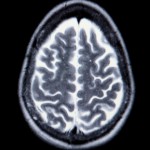In my last post I wrote about what I call short-term memory and my own issues with remembering; I also mentioned typical aged-related memory problems. Now I'd like to delve into ideas for improving our own recall.
I leave myself notes on things to do and I tend to use acronyms or short phrases to remember names. For instance, I had noted a diminutive lady on the recumbent bike next to mine in our health club. She was about my age and was in the gym almost as often as I was. I finally introduced myself and found out her name and, eventually, that of her husband. She's Allison and I quickly decided that my mental picture of her was hurrying to follow a rabbit while she was carrying an umbrella and wearing a short skirt, i.e., "Allison Wonderland."
I tend to be be bad with remembering names, but hers is certainly fixed in my mind.
I also use acronyms. Her husband's name is David, so together they became a court room scene with the acronym "DA." David is the prosecuting district attorney and Allison is there because she jaywalked following the rabbit.
Another person I frequently encounter there is perhaps 15 years older than I am and his name is Jerry...I rendered that as "Jerryatric."
Reading about the varied approaches to memory over many years, I became aware that prior to there being a generalized ability to read written language, people were able to memorize long segments of epic poems. I'm unsure if this was training from a young age or the use of a particular system for memorization. One possibility that has been explored came to my attention from the fictional character Hannibal Lector.
His method of memorization led me to a 1966 classic, The Art of Memory, The author, Frances Yates traces the history of systems of memory; one was the Memory Palace of Mateo Ricci, supposedly utilized by Lector, in which a well-visualized structure can be utilized to place objects.
For instance you could visualize your own home or the rooms of a building that you visit regularly. We tend to be good at remembering places we know well. The concept of the "Memory Palace" is just a metaphor, one that can be as complex or simple as you like, perhaps being a visual map of the places you saw walking to school or driving to work. Whatever the place that you choose, you then have to have it well-visualized because you're going to "drop" memories at a particular corner or on an object you see in your house every day.
I thought this wouldn't work for me, but I just memorized a shopping list of ten items (bacon, eggs, wine, batteries, bubble gum, milk, envelopes, spinach, coffee, tomato) using the technique of mind pegging, the basic start to this concept for remembering a number of items.
When I decided to utilize this method on my list I pictured myself sitting at my kitchen table planning an omelet (bacon and eggs) while drinking a glass of wine. Then the lights went out.
I had to put new batteries into my flashlight and used it to look for additional items in my refrigerator to add to my creation, only to first find I had stashed bubble gum (I've done similar things before) next to the milk.
I still wanted to write down ingredients for my omelet, so I looked for paper and found the most accessible source was in a drawer where I keep envelopes. I made a list adding spinach while I drank a cup of coffee and then finished my recipe with a tomato.
It really worked! I may have to try a similar approach the next time i really do plan to go shopping.
Let's skip to what's current advice and research in the field.
The March 12, 2013 edition of The Wall Street Journal had an article titled, "The New Power of Memory." It referred to a recent publication in the journal Cerebral Cortex by Daniel Schacter, the Chair of the Department of Psychology at Harvard, and colleagues.The WSJ article had an illustration that tied in with my exercise in using a visual link to a list of objects. In this case someone was planning a party for a friend. If they relied on hunches and assumptions about their pal (this step was called "access the past"), then continued in this manner with guesswork in piecing together the image of their friend's personality and imagining their mindset, the end result was a dud, a failure.
If, on the other hand, they remembered specifics about their buddy's past likes and dislikes, as well as incidents that revealed their personality, then used those to imagine their likely mindset, the end result was a hit.
Dr. Schacter was quoted as saying, "using past experiences to anticipate future happenings" lets people weigh approaches to a coming situation without needing to try out the actual behavior.
In other words, if you hone your recall skills until they are sharper, you may be able to avoid a party that's a dud or even prevent a business decision that's a catastrophe.
I'll have to use this approach more often.





